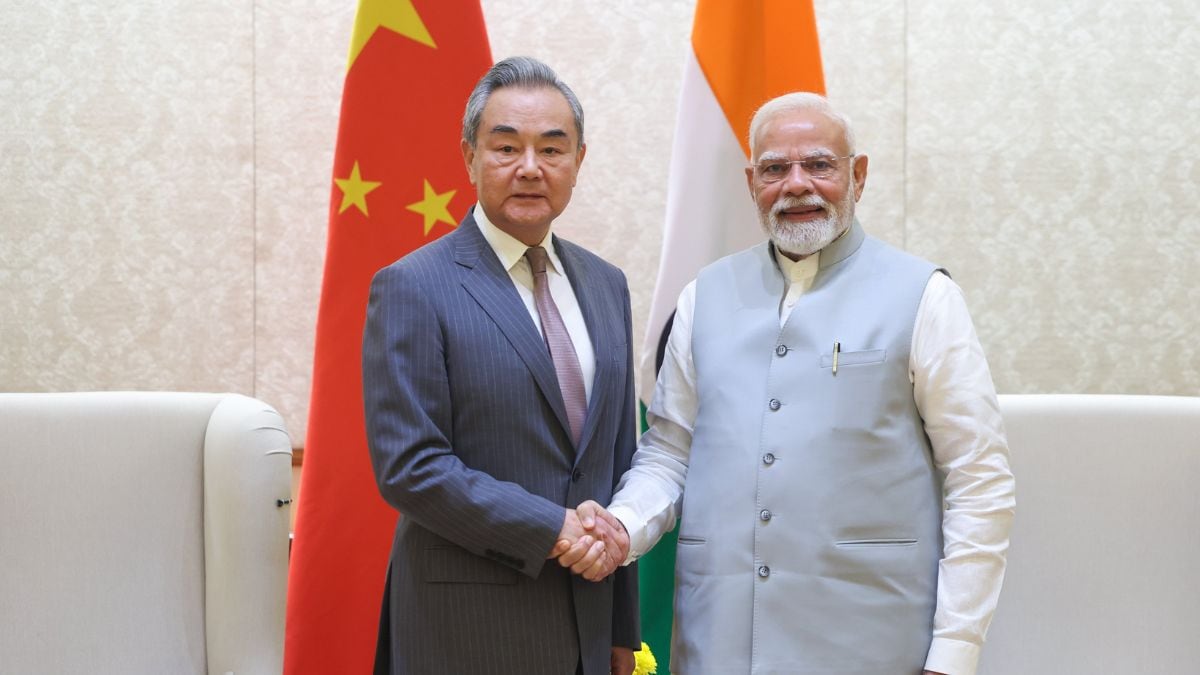

Prime Minister Narendra Modi has acknowledged "steady progress" in India-China relations following a meeting with Chinese Foreign Minister Wang Yi in New Delhi on Tuesday. This development signals a potential thaw in relations that have been strained in recent years due to border disputes and other issues.
During the meeting, Wang Yi conveyed a message and invitation from President Xi Jinping for the Shanghai Cooperation Organisation (SCO) Summit to be held in Tianjin. Modi accepted the invitation and expressed his support for China's presidency of the summit, stating he looks forward to meeting President Xi.
Modi emphasized the importance of maintaining peace and tranquility along the border areas, reiterating India's commitment to a fair, reasonable, and mutually acceptable resolution to the boundary question. He also welcomed the positive momentum in bilateral ties since his meeting with President Xi in Kazan last year, highlighting the resumption of the Kailash Manasarovar Yatra.
The Prime Minister underscored that stable, predictable, and constructive ties between India and China would significantly contribute to regional and global peace and prosperity.
Wang Yi's visit included the 24th round of Special Representatives' Talks on the India-China boundary question with National Security Advisor Ajit Doval. Discussions also covered trade, pilgrimages, and regional developments, ahead of Modi's anticipated trip to China for the SCO summit.
External Affairs Minister S. Jaishankar also met with Wang Yi, emphasizing that the ability to maintain peace and tranquility in the border areas is the basis for any positive momentum in India-China ties. He noted that both nations seek to move ahead after a difficult period in their relationship.
Notably, China has taken steps to address some of India's concerns by lifting export restrictions on fertilizers, rare earth minerals, and tunnel boring machines. This move is viewed as a sign of fresh momentum in trade relations between the two countries.
Analysts suggest that a pragmatic recalibration of ties is underway, with both countries recognizing that cooperation in critical sectors can ease supply chain pressures and create room for stability in an uncertain global order. This involves collaborating where interests align, managing differences carefully, and building predictability into the relationship.
Since Modi and Xi Jinping met on the sidelines of the BRICS summit in Kazan in October 2024, confidence-building measures have been implemented, including easing visa restrictions, discussing direct flights, and reopening religious pilgrimages. China allowed Indian pilgrims to visit sites in Tibet in June, and India resumed issuing tourist visas to Chinese nationals in July after a five-year freeze.
Despite the progress, challenges remain. India ended the 2024-25 fiscal year with a record trade deficit with China, driven by a surge in imports of electronics and consumer durables. New Delhi has maintained that peace at the border is essential for talks on other areas. Meanwhile, Beijing has pushed for separating the boundary issue from broader economic ties.